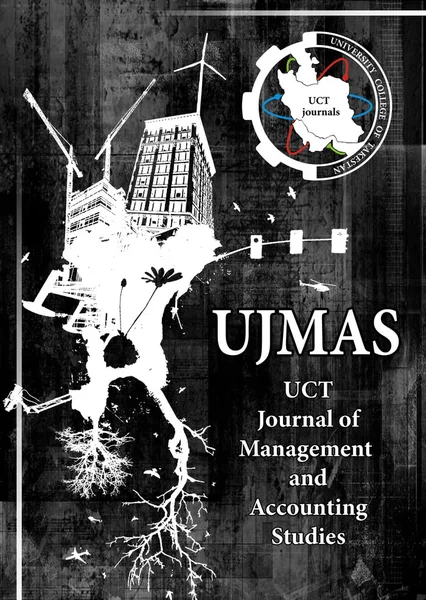-
reliability analysis of lead-free soldering
جزئیات بیشتر مقاله- تاریخ ارائه: 1400/08/01
- تاریخ انتشار در تی پی بین: 1400/08/01
- تعداد بازدید: 229
- تعداد پرسش و پاسخ ها: 0
- شماره تماس ژورنال: 348136784
in this research, analysis of the reliability of lead-free soldering was investigated and a qualitative analysis was discussed about fracture modes of lead-free solder under different tensional tests such as: releasing test, bending test, thermal test and vibration test. cracks caused by fatigue is the main reason of lead-free soldering`s fracture؛ primary cracking speed can change according to the different test conditions and different soldering materials. a quantitative analysis was also carried out on the behavior of lead-free soldering`s fatigue sac (copper and silver) under preheating conditions. this dissertation presents a method for predicting the fracture lifetime of soldering alloys by creating the weibull regression model. the lifetime of solder fracture is supposed on orbital board which was been distributed in the form of weibull. different test materials and conditions can affect distribution following changes of formation parameters and weibull distribution scale. the method used in this thesis is modeling regression of parameters under different test conditions as a predictor based on bayesian inference concepts. in the process of creating regression models, former distributions are done according to previous studies and the monte carlo markov chain (mcmc) has been used under the winbugs environment. the results showed that in general, lead-free solder alloy shows a good fracture lifetime. the alloy with a low mercury had a higher fracture lifetime while the alloy with a high mercury value had a longer fracture lifetime under the thermal precondition process.
حوزه های تحت پوشش ژورنال
مقالات جدیدترین رویدادها
-
استفاده از تحلیل اهمیت-عملکرد در ارائه الگوی مدیریت خلاقیت سازمانی و ارائه راهکار جهت بهبود
-
بررسی تاثیر ارزش وجوه نقد مازاد بر ساختار سرمایه شرکت های پذیرفته شده در بورس اوراق بهادار تهران
-
بررسی تأثیر سطح افشای ریسک بر قرارداد بدهی شرکت های پذیرفته شده در بورس اوراق بهادار تهران
-
بررسی تأثیر رتبه بندی اعتباری مبتنی بر مدل امتیاز بازار نوظهور بر نقد شوندگی سهام با تأکید بر خصوصی سازی شرکت ها
-
تأثیر آمیخته بازاریابی پوشاک ایرانی بر تصویر ذهنی مشتری پوشاک ایرانی (هاکوپیان)
-
بررسی تاثیر مسئولیت اجتماعی شرکت بر عملکرد با تاکید بر نقش میانجی مدیریت منابع انسانی سبز در صنعت هتل داری
-
مطالعه ویژگی ها قوس بحرانی و رخدادهای پس از انهدام قوس پایدار در مصالح دانه ای به کمک دستگاه توسعه یافته دریچه
-
اصول و معیارهای طراحی معماری سبز با تاکید بر تکنولوژی بام سبز
-
بررسی آزمایشگاهی تعیین فرسایش پذیری سوسپانسیون ها، جهت تزریق در سازه های هیدرولیکی
-
ارزیابی شش مولفه ای رکورد زلزله های نزدیک گسل
مقالات جدیدترین ژورنال ها
-
مدیریت و بررسی افسردگی دانش آموزان دختر مقطع متوسطه دوم در دروان کرونا در شهرستان دزفول
-
مدیریت و بررسی خرد سیاسی در اندیشه ی فردوسی در ادب ایران
-
واکاوی و مدیریت توصیفی قلمدان(جاکلیدی)ضریح در موزه آستان قدس رضوی
-
بررسی تاثیر خلاقیت، دانش و انگیزه کارکنان بر پیشنهادات نوآورانه کارکنان ( مورد مطالعه: هتل های 3 و 4 ستاره استان کرمان)
-
بررسی تاثیر کیفیت سیستم های اطلاعاتی بر تصمیم گیری موفق در شرکتهای تولیدی استان اصفهان (مورد مطالعه: مدیران شرکتهای تولیدی استان اصفهان)
-
مقایسه تمایزیافتگی خود در نوجوانان با ساختارخانوادگی تک والد (والد-مادر) و خانواده هسته ای
-
ارتقا هویت یابی سازمانی از طریق برندسازی کارفرمایی (مورد مطالعه: شرکت کیسون)
-
بررسی سیر تاریخی شناخت علمی ادیان و پیدایش علم ملل و نحل در تاریخ و تمدن اسلامی برای همزیستی مسالمت آمیز
-
ارزیابی مؤلفه های تأثیرگذار بر جذب مشتریان و تمایل آن ها به خرید با تأثیرپذیری از سطح قدرت اجتماعی برند
-
the study of dissolution boric acid in different temperature conditions, the dft method


سوال خود را در مورد این مقاله مطرح نمایید :